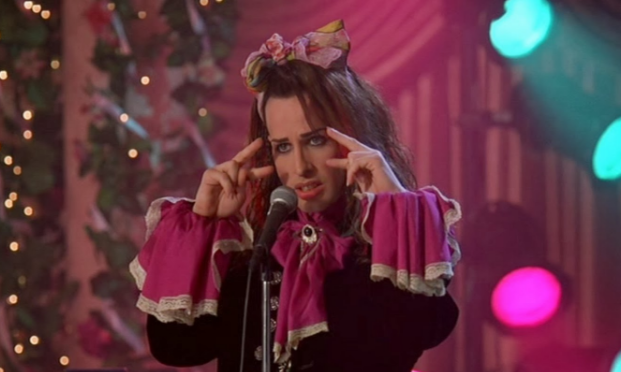The plight of being trans is difficult enough as a civilian, but add to it a touch of celebrity and the challenges augment tenfold. For Alexis Arquette, born Robert in 1969, the responsibility to positively portray trans women in a non-stereotypical, caricature-like manner was one she took seriously, beginning with her first role in Down and Out in Beverly Hills.
It was with 1989’s Last Exit to Brooklyn that Arquette landed her first major acting appearance as a transvestite named Georgette. The “fluke” circumstances of getting the part (it was because of her sister, Rosanna Arquette, who was already auditioning for the film, that Alexis was asked to try out as well) leads one to believe the part-time cabaret performer was destined to make an impression on the silver screen.
While few people (those cisgender types) can name anything Arquette has been in other than The Wedding Singer, the actress has appeared in over forty films, perhaps most importantly Killer Drag Queens on Dope. Always delivering pitch-perfect comedic timing, one would never have guessed at the personal struggle Arquette suffered, particularly with regard to the end of her life as she endured what has so far only been described as a “lengthy illness” (it was AIDS).
On the screen, though, Alexis was always larger than life, infusing the cinema with what it’s been sorely lacking since the 70s and 80s: camp. While Arquette hadn’t graced the camera since 2014’s Blended (which is something of an unfortunate last film to have on one’s resume), she will, if nothing else, always live on in glorious Boy George impersonating glory. We’ll never know what crime Alexis committed to deserve departing this earth at the age of forty-seven, but maybe there is another world, a better world.





















